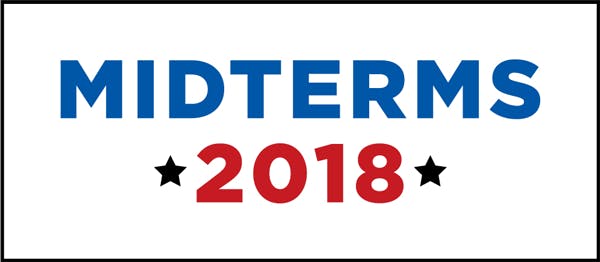In 2016, two members of Congress—one Republican and one Democrat—decided they wanted to end partisan gridlock over global warming. So, in partnership with the advocacy group Citizens’ Climate Lobby, they founded the bipartisan Climate Solutions Caucus. To join, members of Congress would have to publicly declare their concern about human-caused climate change. But there was a catch: No Democrat could join unless they had a Republican colleague to bring along.
The Climate Solutions Caucus had less than a dozen members when it was founded. But by 2018, it had 45 Democrats and 45 Republicans, seemingly united on the desire to solve, or at least slow, global warming.
The Climate Solution Caucus was gutted in Tuesday’s elections. Voters threw out 13 Republican members, including the club’s co-founder and co-chair, South Florida Republican Carlos Curbelo. Combined with retiring members, those losses mean the number of GOP members “will decrease to 24, a 47 percent decline,” according to ThinkProgress. That implies the overall membership will be slashed by about half, since Democrats can’t be members without Republican counterparts.
Here's what I think happens next in American climate action:
— Eric Holthaus (@EricHolthaus) November 7, 2018
Sadly, the era of bipartisan climate action in the U.S. is probably over. The Climate Solutions Caucus, filled with moderate Republicans, has all but crumbled tonight. WA I-1631, a market-based climate policy, failed.
The club’s decimation might feel like a loss to some climate advocates. But for others, it was welcome news. On Wednesday morning, the progressive super PAC Climate Hawks Vote released a statement claiming it had “succeeded in its goal” to “end the farce that is the Climate ‘Solutions’ Caucus.” The group had been running television ads against Curbelo in Florida, pointing out that he had “taken tens of thousands of dollars from fossil fuel interests” and voted for a number of anti-climate policies.
“We targeted Curbelo specifically because he was perceived as a Republican voice of reason on climate even as he criticized ‘alarmists’ on hurricanes wreaking havoc on his state,” RL Miller, the president of the group, said in a statement. Curbelo was indeed seen as a voice of reason on the issue; in July, he proposed a carbon tax bill that the National Resources Defense Council called “one of the first substantive proposals in many years by a congressional Republican” to address global warming.
But the caucus wasn’t full of Republicans like Curbelo. It included many members whose voting records showed zero support for climate solutions. Republican member Matt Gaetz, for example, once proposed a bill to abolish the Environmental Protection Agency. Thus, to Miller and many other environmentalists, the Climate Solutions Caucus has served more as a cover for Republicans to pretend they care about solving global warming, rather than a body that actually works to pass meaningful legislation.
Steve Valk, the communications director for Citizens’ Climate Lobby, understands the criticism. “I think it’s legitimate,” he told me on Wednesday. But Valk says the group exists in order to address a harsh reality—that action on climate change will never happen without Republican engagement. Joining the caucus is just the first step of that process, he said. “Obviously we want them to go beyond just joining the caucus. But to get them to do that, that’s really up to us, the constituents, to give them the support to grab the next piece of the ladder and climb up.”
So, despite the loss of many of its members, Valk said Congress’s bipartisan climate club is going to continue—and that more Republicans will join in the next Congress. “I think there will be enough to replace what they lost in the election,” he said. But who will be the Republican leader now that Curbelo is gone? “Everybody wants to know that for some reason,” he said. “We’re not going to speculate on it right now.”
These are issues the group will face when it sends upwards of 600 volunteers to Washington, D.C., next week to talk with members of Congress about joining. “We’re looking to make climate change a bridge issue instead of a wedge issue; to make it safe for Republicans to step up and take some action,” Valk said. “We’re hoping next week we can set the table for some bipartisan legislation.”
But finding Republicans to join the club, let alone lead it, will be considerably harder than it was in 2016 because the midterms wiped out House Republicans who didn’t wholeheartedly embrace Trump. “We are waking up to a Republican Party that is decidedly more Trumpian than the one it was yesterday,” Ben Domenech, publisher of The Federalist, said on CBS. “This is a situation where Republican moderates are getting creamed.” With the country more politically divided than ever, the Democrats may decide to go at it alone in the fight against global warming. After all, what’s the point of a bipartisan climate caucus if only half of its members are offering solutions?
